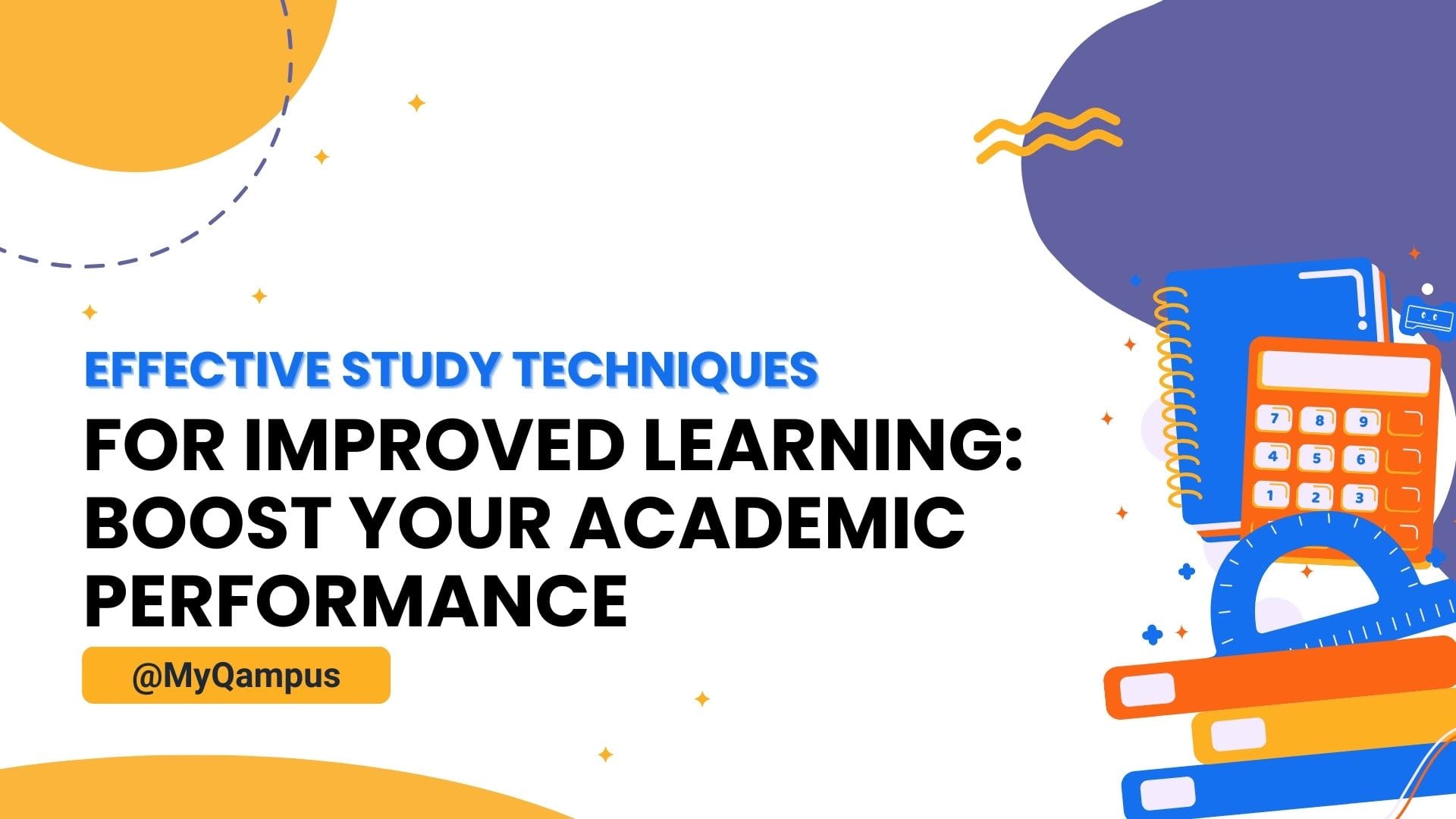Effective Study Techniques for Improved Learning: Boost Your Academic Performance

Students are always searching for the best ways to study efficiently and retain information better. With the right techniques, anyone can improve their academic performance and make learning more enjoyable. In this blog, we’ll explore several strategies that can help you become a more effective learner, from active learning to time management and creating the ideal study environment.
1. Active Learning: Engage to Retain
Active learning is one of the most powerful study techniques to improve retention and understanding. Instead of passively reading or listening, active learning involves engaging with the material by summarizing, teaching, or discussing it. Here are some methods to incorporate active learning into your study routine:
- Summarizing: After learning a concept, write a summary in your own words to reinforce your understanding.
- Teaching: Teaching others is an effective way to solidify what you’ve learned. Try explaining the material to a friend or family member.
- Discussion Groups: Join or create a study group. Discussing material with others helps you see different perspectives and deepen your understanding.
2. Time Management: Study Smarter, Not Harder
Time management plays a critical role in successful studying. Effective time management prevents procrastination, minimizes stress, and helps you stay focused. Here are some proven strategies:
- Study Schedule: Organize your study sessions by creating a weekly schedule. Allocate specific times for each subject, ensuring consistent study habits.
- Pomodoro Technique: Use this time management method to study in short bursts—25 minutes of focused studying followed by a 5-minute break. This helps to maintain concentration and prevents burnout.
- Prioritize Tasks: Tackle more challenging subjects or assignments first when your energy levels are highest, and leave easier tasks for later.
3. Active Note-Taking: Write to Remember
Taking effective notes is essential for retaining information. Active note-taking encourages interaction with the material and helps create a solid review tool for exams. Some popular note-taking methods include:
- Cornell Method: Divide your page into three sections: notes, keywords, and a summary at the bottom. This structure helps organize your notes and makes reviewing easier.
- Mind Mapping: Create visual diagrams to represent information, making it easier to see how different concepts relate to one another.
- Highlighting and Annotation: Use highlighters to mark key points in your notes, and annotate with questions or comments to improve engagement.
4. Regular Review: Keep Information Fresh
One of the best ways to ensure long-term retention is regular review. Consistent revision helps solidify your learning and makes sure that the material stays fresh in your mind.
- Spaced Repetition: Review material at increasing intervals (e.g., after 1 day, 1 week, 1 month) to enhance memory retention.
- Practice Tests: Taking practice tests can help you gauge your understanding, identify weak areas, and improve your exam performance.
- Flashcards: Use flashcards to quickly review key terms and concepts. They're portable and great for quick revision sessions.
5. Healthy Study Environment: Minimize Distractions
A well-organized and distraction-free study environment can significantly improve focus and productivity. Here’s how to optimize your study space:
- Quiet Space: Choose a quiet, well-lit area to study, free from distractions like TV or loud noises.
- Organized Workspace: Keep your study area clean and organized. Ensure all your materials (books, notes, laptop, etc.) are within easy reach.
- Minimize Distractions: Turn off your phone notifications, and use apps or website blockers to stay focused while studying.
6. Active Reading: Engage with the Text
Reading actively rather than passively improves comprehension and retention. It requires you to interact with the material to understand it better. Some helpful strategies include:
- SQ3R Method: Use this technique to maximize your reading: Survey (overview), Question (ask yourself questions), Read (read the text), Recite (summarize aloud), and Review (go over key points).
- Ask Questions: Be curious! Ask questions before, during, and after reading to deepen your understanding of the material.
- Annotate Texts: Mark important passages and write notes in the margins to engage with the text and help with later reviews.
7. Healthy Lifestyle: Fuel Your Brain
Your physical health impacts your mental capabilities. To maximize your learning potential, focus on maintaining a healthy lifestyle:
- Regular Exercise: Physical activity boosts brain function, increases focus, and reduces stress.
- Balanced Diet: Eating a healthy, balanced diet fuels your brain with essential nutrients, supporting cognitive function.
- Adequate Sleep: Getting 7-9 hours of sleep per night is crucial for memory consolidation and mental clarity.
Conclusion: Enhance Your Learning with These Techniques
By implementing effective study techniques like active learning, time management, note-taking strategies, and regular review, students can improve their academic performance and make learning more enjoyable. Creating a healthy study environment, engaging with reading materials, and maintaining a healthy lifestyle further support your learning journey.
Incorporating these techniques into your routine will help you study smarter, not harder, and ultimately lead to improved results. So, start today and watch your learning outcomes soar!